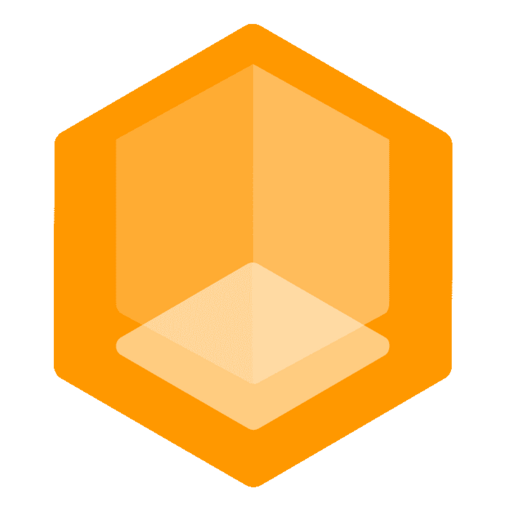 Kotlin
Kotlin
Gate provides a Kotlin API for integrating with your Kotlin applications using either Connect-RPC or gRPC. You can use the API to interact with Gate programmatically.
Installation
First, configure your package manager to add the Buf registry. You only need to do this once:
kotlin
// build.gradle.kts
repositories {
mavenCentral()
maven {
name = "buf"
url = uri("https://buf.build/gen/maven")
}
}groovy
// build.gradle
repositories {
mavenCentral()
maven {
name = 'buf'
url 'https://buf.build/gen/maven'
}
}xml
<!-- pom.xml -->
<repositories>
<repository>
<name>Buf Maven Repository</name>
<id>buf</id>
<url>https://buf.build/gen/maven</url>
<releases>
<enabled>true</enabled>
</releases>
<snapshots>
<enabled>false</enabled>
</snapshots>
</repository>
</repositories>Then add the dependencies. You can choose between Connect-RPC (recommended) or gRPC:
Latest Version Check
Make sure to check buf.build/minekube/gate/sdks for the latest versions of the dependencies.
kotlin
dependencies {
// Connect-RPC for Kotlin (Recommended)
implementation("build.buf.gen:minekube_gate_connectrpc_kotlin:0.7.1.1.20241118150055.50fffb007499")
implementation("com.connectrpc:connect-kotlin:0.7.1")
}groovy
dependencies {
// Connect-RPC for Kotlin (Recommended)
implementation 'build.buf.gen:minekube_gate_connectrpc_kotlin:0.7.1.1.20241118150055.50fffb007499'
implementation 'com.connectrpc:connect-kotlin:0.7.1'
}xml
<dependencies>
<!-- Connect-RPC for Kotlin (Recommended) -->
<dependency>
<groupId>build.buf.gen</groupId>
<artifactId>minekube_gate_connectrpc_kotlin</artifactId>
<version>0.7.1.1.20241118150055.50fffb007499</version>
</dependency>
<dependency>
<groupId>com.connectrpc</groupId>
<artifactId>connect-kotlin</artifactId>
<version>0.7.1</version>
</dependency>
</dependencies>kotlin
dependencies {
// gRPC for Kotlin
implementation("build.buf.gen:minekube_gate_grpc_kotlin:1.4.1.1.20241118150055.50fffb007499")
implementation("io.grpc:grpc-kotlin-stub:1.4.1")
implementation("io.grpc:grpc-protobuf:1.68.1")
implementation("io.grpc:grpc-netty-shaded:1.68.1")
}groovy
dependencies {
// gRPC for Kotlin
implementation 'build.buf.gen:minekube_gate_grpc_kotlin:1.4.1.1.20241118150055.50fffb007499'
implementation 'io.grpc:grpc-kotlin-stub:1.4.1'
implementation 'io.grpc:grpc-protobuf:1.68.1'
implementation 'io.grpc:grpc-netty-shaded:1.68.1'
}xml
<dependencies>
<!-- gRPC for Kotlin -->
<dependency>
<groupId>build.buf.gen</groupId>
<artifactId>minekube_gate_grpc_kotlin</artifactId>
<version>1.4.1.1.20241118150055.50fffb007499</version>
</dependency>
<dependency>
<groupId>io.grpc</groupId>
<artifactId>grpc-kotlin-stub</artifactId>
<version>1.4.1</version>
</dependency>
<dependency>
<groupId>io.grpc</groupId>
<artifactId>grpc-protobuf</artifactId>
<version>1.68.1</version>
</dependency>
<dependency>
<groupId>io.grpc</groupId>
<artifactId>grpc-netty-shaded</artifactId>
<version>1.68.1</version>
</dependency>
</dependencies>Usage Example
Here's a basic example of using the Gate Kotlin API to connect to Gate and list servers:
kotlin
package com.example.connect
import build.buf.gen.minekube.gate.v1.GateServiceClient
import build.buf.gen.minekube.gate.v1.ListServersRequest
import com.connectrpc.ConnectException
import com.connectrpc.ProtocolClientConfig
import com.connectrpc.extensions.GoogleJavaProtobufStrategy
import com.connectrpc.impl.ProtocolClient
import com.connectrpc.okhttp.ConnectOkHttpClient
import com.connectrpc.protocols.NetworkProtocol
import kotlinx.coroutines.runBlocking
import okhttp3.OkHttpClient
fun main() = runBlocking {
try {
// Create a Connect client
val client = ProtocolClient(
httpClient = ConnectOkHttpClient(OkHttpClient()),
ProtocolClientConfig(
host = "http://localhost:8080",
serializationStrategy = GoogleJavaProtobufStrategy(),
networkProtocol = NetworkProtocol.CONNECT,
),
)
// Create the service client
val gateService = GateServiceClient(client)
// List all servers
val request = ListServersRequest.newBuilder().build()
val response = gateService.listServers(request)
println(response.toString())
} catch (e: ConnectException) {
System.err.println("Make sure Gate is running with the API enabled")
e.printStackTrace()
}
}kotlin
package com.example.grpc
import io.grpc.ManagedChannelBuilder
import build.buf.gen.minekube.gate.v1.GateServiceGrpcKt
import build.buf.gen.minekube.gate.v1.ListServersRequest
import kotlinx.coroutines.runBlocking
fun main(): Unit = runBlocking {
try {
// Create a gRPC channel
val channel = ManagedChannelBuilder
.forAddress("localhost", 8080)
.usePlaintext()
.build()
// Create the service client
val stub = GateServiceGrpcKt.GateServiceCoroutineStub(channel)
// List all servers
val response = stub.listServers(ListServersRequest.getDefaultInstance())
println(response)
// Shutdown the channel
channel.shutdown()
} catch (e: Exception) {
System.err.println("Make sure Gate is running with the API enabled")
e.printStackTrace()
}
}Running the Example
- Run Gate with the API enabled
- Navigate to the docs/developers/api/kotlin directory
- Initialize the Gradle wrapper (only needed once):
bash
gradle wrapper- Run one of the following commands:
bash
# For Connect example (recommended)
./gradlew runConnect
# For gRPC example
./gradlew runGrpc
# Example output:
servers {
name: "server3"
address: "localhost:25568"
}
servers {
name: "server4"
address: "localhost:25569"
}
servers {
name: "server1"
address: "localhost:25566"
}
servers {
name: "server2"
address: "localhost:25567"
}Learn More
For more details on using ConnectRPC with Kotlin, check out the ConnectRPC Documentation.
